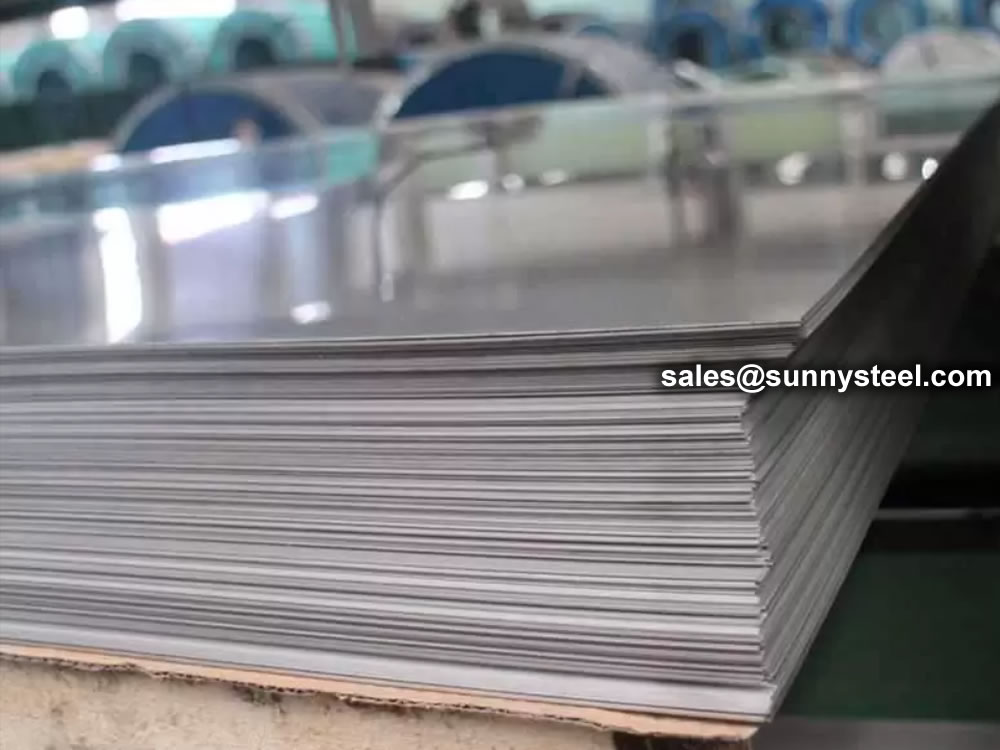
1.4057 Stainless Steel Plate maintains its high toughness and tensile properties in the quenched and tempered condition.
This makes it ideal for bolt and shaft applications. As with other common stainless steel grades, it is resistant to chemical attack from a range of biological media, organic matter, and various corrosive elements. This makes 1.4057 stainless steel uniquely suited for medical and food contact devices, as well as for complex machinery in shipbuilding applications.
One of the most rounded stainless steel grades on the market, 1.4057 stainless steel is an outstanding engineering material for demanding applications. It is a martensitic chromium alloy with exceptional corrosion resistance and versatile thermodynamic properties. Inherently resistant to salt water and scaling at continuous operating temperatures of 870°C, 1.4057 stainless steel is a widely-used engineering alloy for marine applications.
Good resistance to seawater and water of varying salt concentrations
Easily machined into complex parts
Suitable for hygiene-critical applications
| Description | 1.4057 Stainless Steel |
|---|---|
| Tensile Strength (MPa) | <1000 |
| Yield Strength (MPa) | 1080 |
| Elongation (% in 50mm) | 20 |
| Hardness (HB) | <388 |
| Impact Charpy V (J) | 50 – 84 |
| UNS No | S43100 |
|---|---|
| AISI | 431 |
| Carbon (C) | 0.12 – 0.22% |
| Chromium (Cr) | 5—17% |
| Manganese (Mn) | <1.0% |
| Nickel (Ni) | 0.025 |
| Phosphorous (P) | <0.04% |
| Silicon (Si) | <1.0% |
ASTM 431, or 1.4057 stainless steel, is the comprehensive martensite grade for engineering applications. The exact composition varies, but an exemplary 1.4057 stainless steel will comprise: 15 – 17% chromium; 2 – 2.5% Nickel; 0.12 – 0.22% Carbon. It may also comprise small volumes of molybdenum, silicon, and phosphorous.
Chromium is the primary alloying element of martensitic steels such as 1.4057 stainless steel, imparting moderate corrosion resistance to a material with inherently high hardness and strength. In the unquenched and un-tempered condition, martensitic grades are brittle and unsuitable for engineering applications. Typically, nickel concentrations of 2 – 2.5% are added as a stabilizing element to ensure a martensitic steel retains its toughness properties through heat treatment, enabling the fabrication of numerous component types. Medical tools and mechanical components are among the most common devices constructed from martensitic steels.
ASTM 431, or 1.4057 stainless steel, is the comprehensive martensite grade for engineering applications. The exact composition varies, but an exemplary 1.4057 stainless steel will comprise: 15 – 17% chromium; 2 – 2.5% Nickel; 0.12 – 0.22% Carbon. It may also comprise small volumes of molybdenum, silicon, and phosphorous.

When you partner with Sunny Steel, you can stop worrying about meeting deadlines thanks to our responsive and timely service. You'll also say goodbye to unnecessary shopping around. Instead, you'll get white glove service from an expert who understands your needs and can get you the materials you need quickly.
